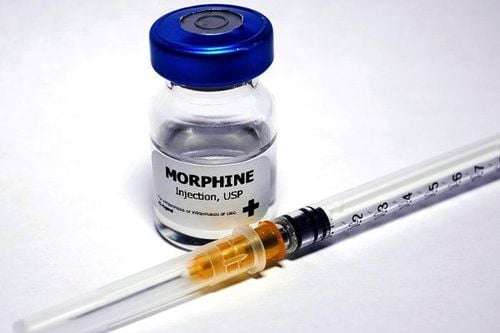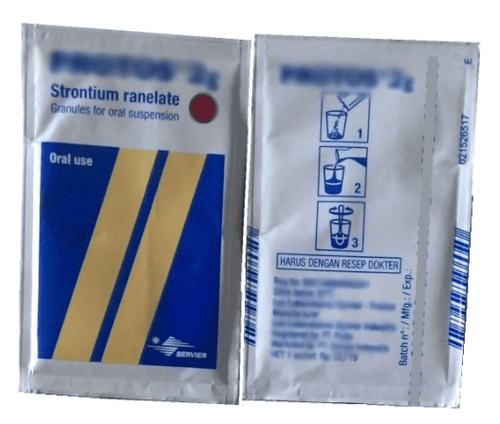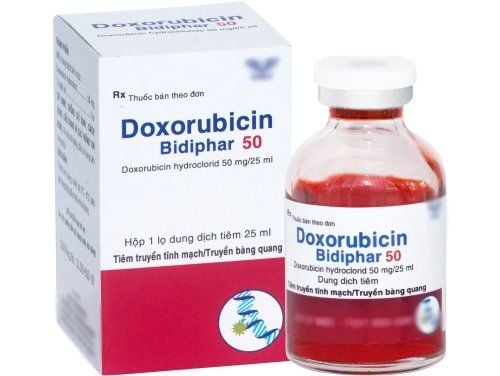This is an automatically translated article.
The article was written by Specialist Doctor I Nguyen Thi Minh Thuyen - Pathologist, Laboratory Department - Vinmec Danang International General Hospital.Screening is taking tests to find cancer before there are any symptoms of the disease. Below are recommendations from the American Cancer Society for screening for some common cancers.
1. Breast cancer
Women aged 40 to 44 years: should begin annual breast cancer screening with mammograms (mammograms), if desired. Women 45 to 54 years old: need annual mammograms. Women 55 years of age and older: mammograms should be done every 2 years, or yearly screening can be continued. Screening should continue as long as the woman is in good health and is expected to live 10 years or more. All women should understand the potential benefits, limitations, and harms of breast cancer screening. Women should also recognize and feel how normal their breasts look and immediately notify their doctor if there are any changes in their breasts.Some women - due to family history, genetic predisposition or some other factors - should be screened with an MRI along with a mammogram (a small number of women fall into this category), given Talk to your doctor about your breast cancer risk to get the best screening plan for you.
At Vinmec International General Hospital, all image data of 3D breast ultrasound examination, mammography as well as magnetic resonance imaging of customers' breasts are stored on the PACS system for a long time. This system acts as an electronic medical record, convenient for monitoring and comparing lesions at subsequent visits to help improve the value of diagnosis and treatment.
Customers who need breast cancer screening at Vinmec International General Hospital can contact the support hotline.
Please dial HOTLINE for more information or register for an appointment HERE. Download MyVinmec app to make appointments faster and to manage your bookings easily.
2. Polyps and rectal cancer
For people at average risk of colorectal cancer, the American Cancer Society recommends starting regular screening at age 45. Stool tests or endoscopy may be done to look for signs of cancer. Regardless of the type of test you choose, it is most important that you get screened. If you are in good health, you should continue to have regular screening until age 75. For people 76 to 85 years old, talk with your doctor about whether continuing screening is right for you. When deciding, take into account your individual needs, overall health, and previous screening history. People over the age of 85 should no longer be screened for colorectal cancer. If you choose to be screened with a test other than a colonoscopy, any abnormal test results should be followed up with a colonoscopy.
3. Cervical cancer
Cervical cancer screening should begin at age 25. People under the age of 25 should not be tested because cervical cancer is rare in this age group. People 25 to 65 years of age: should have an HPV test (human papillomavirus) every 5 years, or a simultaneous test (HPV test and Pap Smear cytology) every 5 years or a Pap Smear test every 3 five . The most important thing to remember is to get screened regularly, no matter what type of screening test you choose.People over the age of 65 who have had regular cervical cancer screening in the past 10 years and have normal results do not need further testing. People with a history of high-grade precancerous lesions of the cervix (HSIL) should continue to be tested for at least 25 years after diagnosis, even past age 65. People who have had their cervix removed for reasons unrelated to cervical cancer or high-grade precancerous lesions do not need testing. People who have been vaccinated against HPV should still follow the screening recommendations by age group. Some individuals - due to health history (HIV infection, organ transplant, exposure to DES, etc.) - may need a separate cervical cancer screening schedule, which should be discussed with their doctor about money. your history.
When cervical cancer screening at Vinmec, customers can apply the ThinPrep Pap Test for early detection of cervical cancer, a method approved by the US Food and Drug Administration (FDA). in use since May 1996. This new method is currently being used widely in the US and Europe.
4. Endometrial cancer
The American Cancer Society recommends that at menopause, all women should be informed about the risks and symptoms of endometrial cancer and tell their doctor about any bleeding. Vaginal abnormalities.Some women - due to a special history - may need to consider an endometrial biopsy annually.
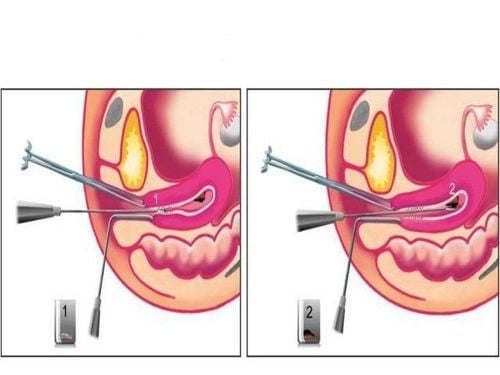
5. Lung cancer
The American Cancer Society recommends annual lung cancer screening with a low-dose CT Scan for certain people at high risk for lung cancer who meet the following conditions:Age 55 up to 74 and in good health Current smoker or quit in the last 15 years Have a smoking history of at least 30 pack-years. (One pack-year is 1 pack per day per year. One pack per day for 30 years, or 2 packs per day for 15 years, will count as 30 pack-years) Before being screened, you should talk to your doctor. Doctor about:
Lung cancer risk How can you quit smoking, if you still smoke Benefits, limitations and possible harms of lung cancer screening Where you can be screened filter >>> Lung cancer screening package
6. Prostate cancer
The American Cancer Society recommends that men make an informed decision about whether to be screened for prostate cancer. Research has yet to demonstrate that the potential benefits of screening outweigh the harms of screening and treatment. We need to believe that men shouldn't get tested without first learning what we know and don't know about the possible risks and benefits of testing and treatment.Starting at age 50, men should talk with their doctor about the pros and cons of screening so they can decide if the test is the right option for them.
If testing is decided, blood PSA should be tested with or without a rectal exam. How long you'll be tested will depend on your PSA levels.
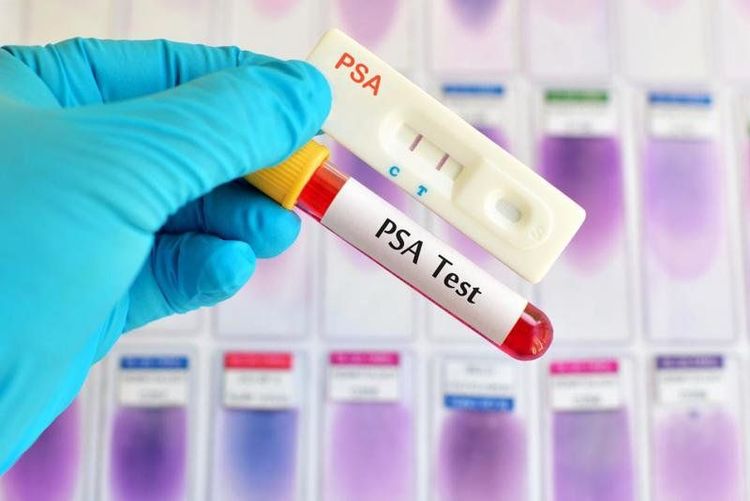
7. Taking control of your health will help reduce your risk of cancer
Stay away from all forms of tobacco. Achieve and maintain a healthy weight. Exercise and physical activity regularly. Eat healthy with lots of fruits and vegetables. Best not to drink alcohol. If drinking, no more than 1 drink per day for women or 2 drinks per day for men Protects skin. Take your personal history, family history, and risk factors. Get regular health check-ups and do cancer screening tests.Please dial HOTLINE for more information or register for an appointment HERE. Download MyVinmec app to make appointments faster and to manage your bookings easily.
Article referenced source: American Cancer Society







